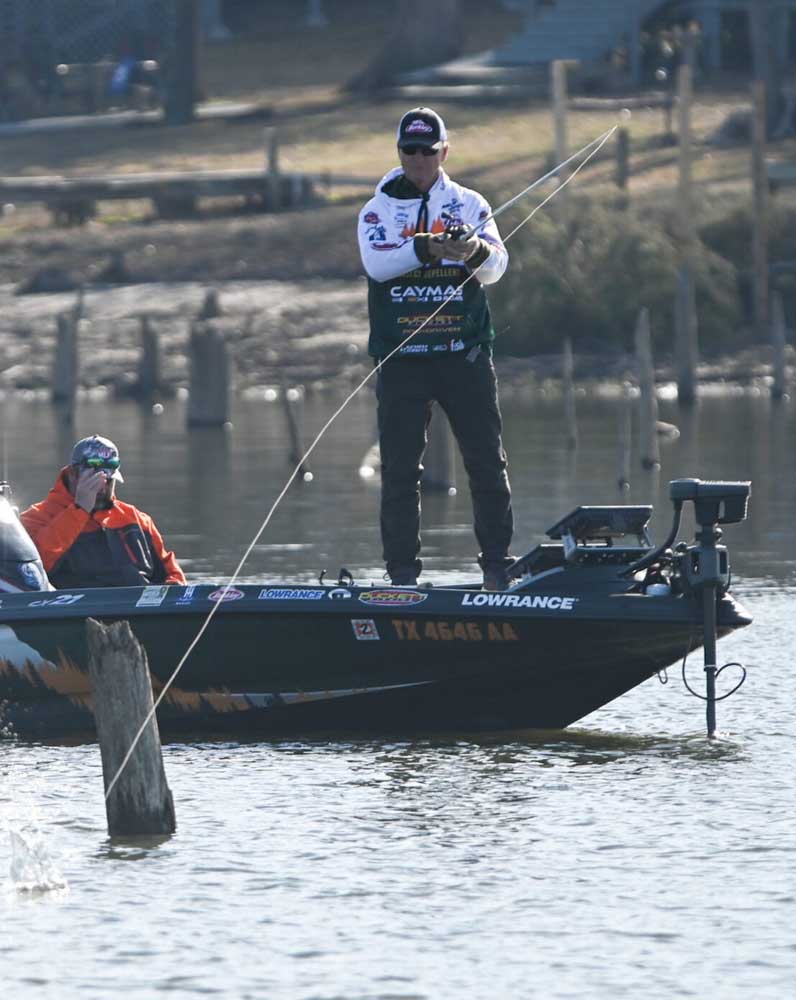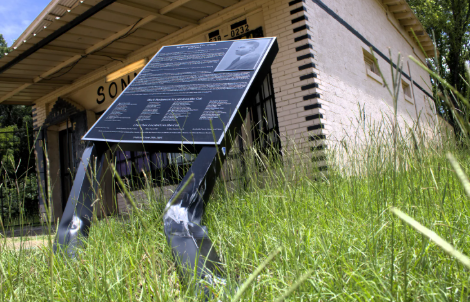Texas Proud: Pro Angler Gary Klein Named To Texas Fishing Hall Of Fame
Published 1:35 pm Thursday, February 24, 2022

- Bass fisherman Gary Klein is known for his skill on the water, role in creating Major League Fishing, interest in conservation and the promotion of fishing, and now the transplanted Texan is a member of the Texas Freshwater Fishing Hall of Fame.
The Texas Freshwater Fishing Hall of Fame is an interesting collection of names that paint a picture of what Texas fishing was and what it has become.
There are fisheries biologists who through the years paved the way from a raw fishery consisting of just whatever was in the waters of Texas through the 20-year era of reservoir construction in the state to what is admired by many as one of the best, if not the best, statewide sport fishery in America.
Trending
There are organizations and industry innovators who made fishing better and fun, individual fishermen that left their mark along the way and even an outdoor writer or two.
After a pause for COVID in 2021, induction into the hall is back this year with the naming of Major League Fishing and former Bassmaster angler Gary Klein as the newest member.
The rare, but certainly not the last, professional angler to be inducted, Klein is not a native Texan, but as the saying goes he got here as quick as he could. And he has settled in quite well as a resident of Mingus, a town on I-20 about halfway between Fort Worth and Abilene that is probably best known as for years the only spot in Palo Pinto County to buy a cold one.
“I have been in Texas 36 years. I am proud to be a Texan,” said Klein, a native of Oroville, Calif.
Klein began tournament fishing at the age of 16, and being a pro angler is the only job he has ever had. His professional career has taken the 62-year-old angler across the country, fishing 407 Bassmaster events and MLF tournaments since its 2011 inception. He has eight wins and 30 Bassmaster Classic appearances.
He finished 10th in his first Bassmaster tournament in 1979 and was eventually named the organization’s angler of the year in 1989 and 1993. On the water Klein is known for spreading the technique of flipping from the west coast to lakes around the country.
Trending
Talking to Klein a day before his opening round at the MLF Stage Two tournament on Lake Fork, he rattled off a list of the Texas lakes he has fished competitively.
“I have fished Amistad, Falcon, Toledo Bend, Conroe, Rayburn, Fork, Naconiche, Jacksonville, Sabine River, Texoma, Richland-Chambers, Tawakoni, Lewisville, Ray Hubbard, Lake Travis, Belton, Waco, Whitney and Livingston,” recalled Klein, who has career earnings of nearly $2.8 million.
Through his travels he has become an unabashed cheerleader for the fisheries in his adopted state.
“Last year I was doing an interview and I was asked what makes fishing so good. Is it the electronics? The tackle? My opinion is you can’t catch what doesn’t live in the lake,” he said.
For that he credits Texas Parks & Wildlife Department for its forward thinking in bass fishing management, whether it is the continuous stocking of Florida strain bass, regulations or other initiatives.
“TPWD has so much to be proud of. I hope they continue to do more in the future and that new administrations continue that and don’t just rest on past successes,” Klein said.
The fisherman’s role in developing Major League Fishing actually involved the inception of the old Toyota Texas Bass Classic that made its first appearance on Lake Fork in 2007. Kelly Jordon, who was guiding on Fork when not competitively fishing at the time, lined up support from Toyota. The problem was there needed to be a way to make a tournament work around the lake’s slot limit. That is where Klein came up with the catch-weigh-release concept that became the basis of all MLF Pro Tour tournaments. Along with opening all lakes to tour tournaments, the idea eliminates the potential for livewell mortality that has been estimated at 5 percent or more.
His goal is that the conservation efforts from MLF do not end there. The organization’s Fisheries Management Division is already involved in a nationwide DNA sampling of bass 7 pounds and larger to help bass quality around the country. He also sees the need for more habitat restoration, including in Texas, with no new reservoirs coming on line and fishing pressure growing.
Klein is also supportive of TPWD’s Toyota ShareLunker program, having caught a 16.79-pounder donated to the program three years ago off a private lake. Remarkably, he caught the bass using a drop shot on 6-pound-test line 30 feet deep.
Of course he also wants to see the sport continue to grow, which is part of the reason MLF is so accessible either through live streaming or throughout the year on the Outdoor Channel television network.
On the local level Klein has been involved with the Texas Bass Brigade program, which teaches youth fishing skills, aquatic management and leadership. He has also participated in veterans fishing events and other outreach programs.
The Texas Freshwater Fishing Hall of Fame is not Klein’s first time to be honored. In 2018 he was inducted to the Bass Fishing Hall of Fame in Springfield, Missouri, which recognizes nationwide recipients.
Unfortunately Klein did not move on to the knockout round of the Lake Fork tournament, but later this spring Klein’s induction in Texas’ Hall will be recognized with a plaque and video at the Texas Freshwater Fisheries Center in Athens.
Oh, and the Mingus address? It is actually the fourth place Klein, his wife, Jana, and daughters, Lakota and Kanyon, have lived in Texas. It seems like an odd spot for a pro fisherman to base out of, but Klein’s other passion is deer hunting and they were able to purchase land and move there giving him more time to hunt in the offseason. It only adds to his Texan credibility.






